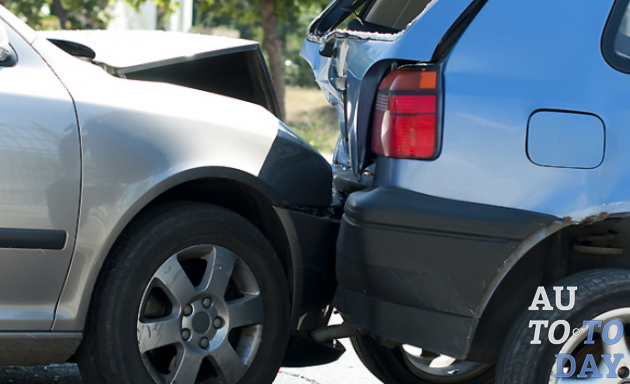Introduction
Purchasing a new car is an exciting experience, but sometimes it doesn’t go as planned. Whether it’s buyer’s remorse, an unexpected issue with the vehicle, or simply changing your mind, knowing the new car return policy in California is crucial. In this article, I will delve into everything you need to understand about returning a new car in California, ensuring you’re well-informed for your next purchase.

Understanding California's New Car Return Policy
California’s new car return policy, also known as the “cooling-off period,” allows buyers to return their vehicles under certain conditions. This policy isn’t universal, so it’s essential to be aware of your rights as a consumer. The California Department of Consumer Affairs provides guidelines that outline what buyers should expect when returning a vehicle.
Key Aspects of the Policy
- Time Frame: In California, there is no standard return period for new cars. Some dealerships offer a return policy ranging from 3 to 7 days, while others may not allow returns at all. Always check with the dealership for their specific terms.
- Condition of the Car: To qualify for a return, the vehicle typically must be in like-new condition. This means no scratches, dents, or signs of wear. If you plan to return the car, ensure you maintain its condition as much as possible.
- Documentation: When returning a vehicle, you will need to provide all necessary documentation, including the purchase agreement, title, and any other paperwork you received at the time of purchase. This paperwork helps streamline the return process.
- Restocking Fees: Some dealerships may charge a restocking fee when you return a vehicle. This fee varies by dealership, so it’s important to clarify this detail before making your purchase.
The Importance of a Vehicle Return Policy
Having a clear return policy benefits both consumers and dealerships. For buyers, it provides peace of mind, knowing they have options if they change their minds. For dealerships, it builds trust and can lead to increased customer satisfaction.
Consumer Rights
Understanding your consumer rights is essential when dealing with new car purchases in California. The state has robust consumer protection laws that ensure you are treated fairly throughout the buying process. If you encounter issues with your new car or the return process, resources are available to help.
Steps to Return a New Car in California
If you find yourself needing to return a new car in California, follow these steps to make the process as smooth as possible.
- Review the Return Policy: Before attempting to return your car, review the dealership’s return policy. This information is usually outlined in the purchase agreement. Knowing the specifics will help you understand what to expect.
- Prepare Your Vehicle: Ensure your vehicle is clean and in excellent condition before returning it. Any signs of wear or damage may affect your eligibility for a return. It’s wise to take pictures of the car to document its condition before returning it.
- Gather Documentation: Collect all necessary documentation, including your purchase agreement, registration, and any additional paperwork. Having everything in order will help expedite the return process.
- Contact the Dealership: Reach out to the dealership to initiate the return process. Explain your reasons for the return and ask about any specific requirements they may have. Communication is key to a successful return.
- Complete the Return Process: Follow the dealership's instructions to finalize the return. Be prepared to sign any necessary documents and address any outstanding fees. Once the return is complete, ensure you receive confirmation from the dealership.
Common Questions About New Car Returns
As I navigated the complexities of returning a new car, I had several questions. Here are some common queries many people have about the return policy in California.
Can I Return a New Car If I Changed My Mind?
In California, returning a new car solely because you changed your mind depends on the dealership's return policy. Some may allow this within a specific time frame, while others might not.
What Happens If the Car Has a Mechanical Issue?
If your new car has a mechanical issue, you may be entitled to a return or exchange under California's lemon law. This law protects consumers when a vehicle has significant defects. Always report any issues promptly to the dealership.
Is There a Fee for Returning a Car?
Many dealerships may charge a restocking fee when returning a car. This fee can vary widely, so it's essential to ask about it upfront. Understanding any fees involved will help you make an informed decision.
What If I Financed My Car?
If you financed your car, returning it may affect your loan agreement. Be sure to discuss this with your dealership and lender to understand how a return could impact your financial obligations.
Tips for a Smooth Return Process
Having successfully navigated my own return, I've compiled some tips to ensure you have a smooth experience.
- Communicate Openly: Always maintain open communication with the dealership. If you have concerns or questions, don’t hesitate to ask. A good relationship with the dealership can significantly ease the return process.
- Document Everything: Keep records of all communications and transactions related to your car purchase and return. This documentation can be invaluable if disputes arise.
- Act Quickly: If you decide to return your car, do so as quickly as possible. Most dealerships have strict time frames, and acting fast will increase your chances of a successful return.
- Know Your Rights: Familiarize yourself with your rights as a consumer in California. Knowledge is power, and understanding your rights will help you navigate any challenges during the return process.
Conclusion
Navigating the new car return policy in California can be a bit overwhelming, but being informed makes all the difference. Always check the dealership’s specific policies, maintain your vehicle's condition, and communicate openly throughout the process. Should you find yourself needing to return your new car, following the steps outlined above can help ensure a smoother experience.

 0
0 




















